‘Lee Kyung-hae’ and ‘DOWN! DOWN! WTO!’ echoed in Bogotá, Colombia
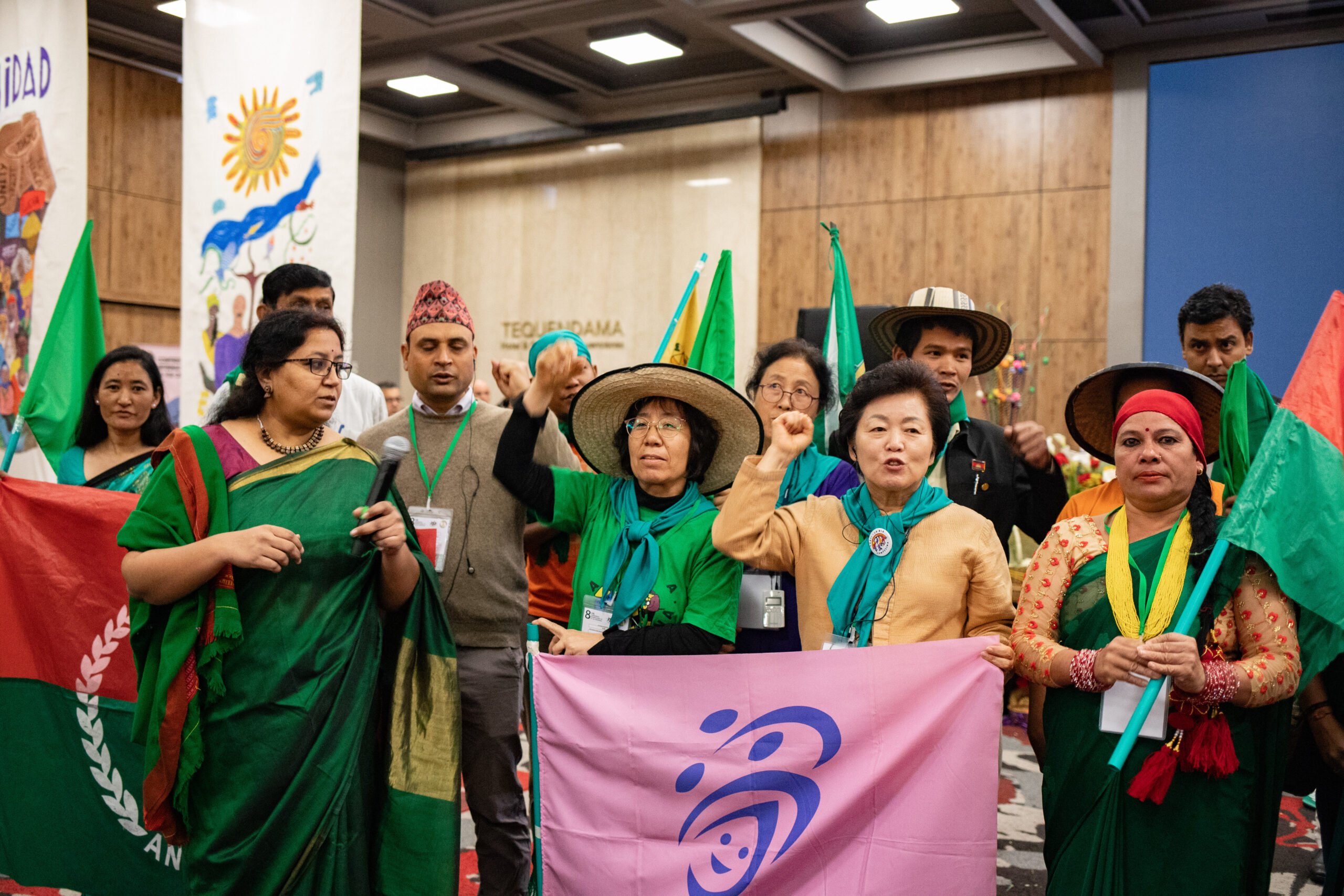
Honoring the memory of Lee Kyung-hae, who died opposing the World Trade Organization, and emphasizing the importance of expanding agroecology, Kim Jung-yeol, Internal Coordination Committee of La Via Campesina for Southeast and East Asia spoke on the climate crisis, food sovereignty, and women farmers.
The international peasant movement, La Via Campesina, is holding its 8th International Conference in Bogotá, Colombia. On the second day of the plenary session, an agroecology fair was held in honor of Lee Kyung-hae, the South Korean peasant farmer who sacrificed his life in the pursuit of justice. The day began with a mistica for the Asian region, followed by presentations and roundtable discussions on La Via Campesina’s food sovereignty movement and the international crisis facing food systems.
The inaugural Asian mistica symbolized the ongoing struggles of peasants around the world, victims of the impacts of neoliberalism, imperialism, and capitalism, including the WTO, Free Trade Agreements, international banks, GMO seed companies, and traders. Then, they presented alternatives such as La Via Campesina, the food sovereignty movement, and the importance of agroecology.
At the mistica, Lee Jun-gyu, Secretary General of the Goesan of Korean Peasants League (KPL), said, “Let us remember Lee Kyung-hae, who took his life in Cancun, Mexico, in 2003 with the chant of ‘WTO kills farmers’, to alert the world to the atrocities of the WTO. It has been 20 years since our comrade passed away, but we have continued to fight against WTO violence with our comrades around the world. Although Lee Kyung-hae is no longer with us, his fighting spirit will be with all peasants around the world,” he said in his speech. The mistica concluded with a moment of silence in honor of peasants around the world whose fates have been changed by the struggle.

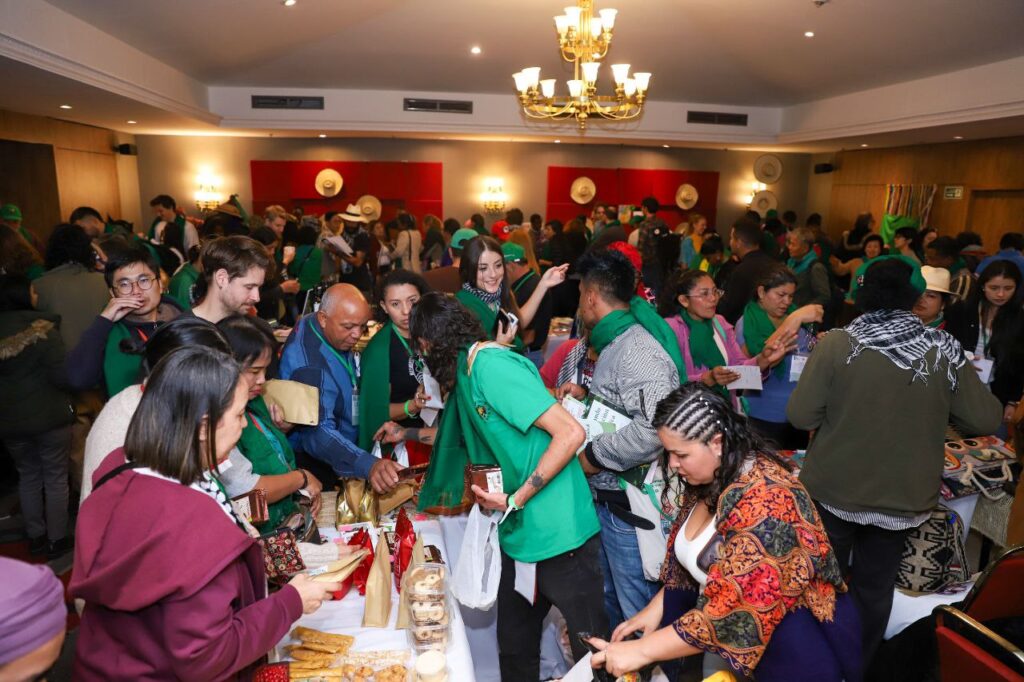
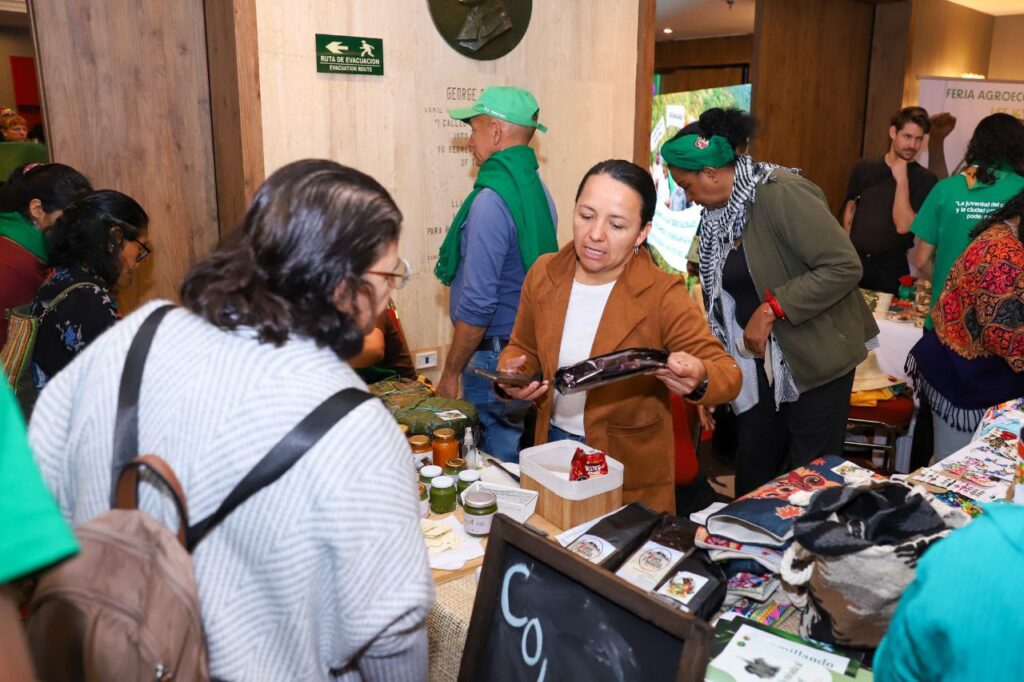
The day continued with presentations and roundtables on the theme of food sovereignty. The roundtable included representatives from Nicaragua, Uganda, Palestine, Tunisia, and the International Coordinating Committee (ICC) for Southeast and East Asia. And South Korea’s Kim Jung-yeol, who discussed how their countries are resisting the capitalist model of production and building food sovereignty.
First, Fausto Torres (ATC, Nicaragua) said, “The greatest achievement of La Via Campesina in the last 30 years is food sovereignty. In Latin America, corn and potatoes have been recognized as very important symbols since time immemorial. This means that food sovereignty is historically important. Capitalism is not the solution to the world’s food problems. We need to guarantee access to land and water, encourage family farming, and ensure local production systems. There are currently 12 agroecology schools (IALA) in Latin America, and we need to allow them to act as a platform at the regional level.” He then added, “Through agroecology, we can encourage consumers to consume locally, guarantee food distribution, connect regions through peasant struggles, and consolidate production systems. This is how we can achieve food sovereignty, and our farmers have an important role to play that no one else can.”
Margaret Masudio (Uganda), a member of the Eastern and Southern African Farmers Forum (ESAFF), added: “Food sovereignty is being ignored and neglected in Africa. In Africa, where large-scale agriculture is practiced due to industrialization, large-scale agriculture tends to dominate the land of small farmers, and the concept of food sovereignty is lacking due to large-scale agricultural investment. In terms of policy, it is difficult for countries to make laws to give farmers rights and protect food sovereignty.”
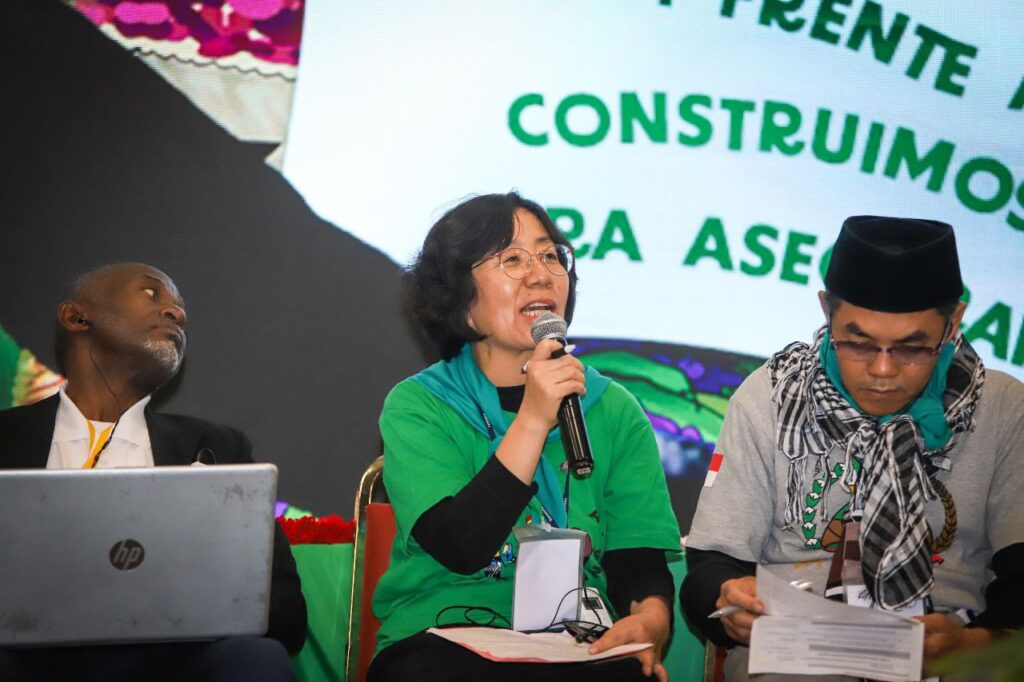
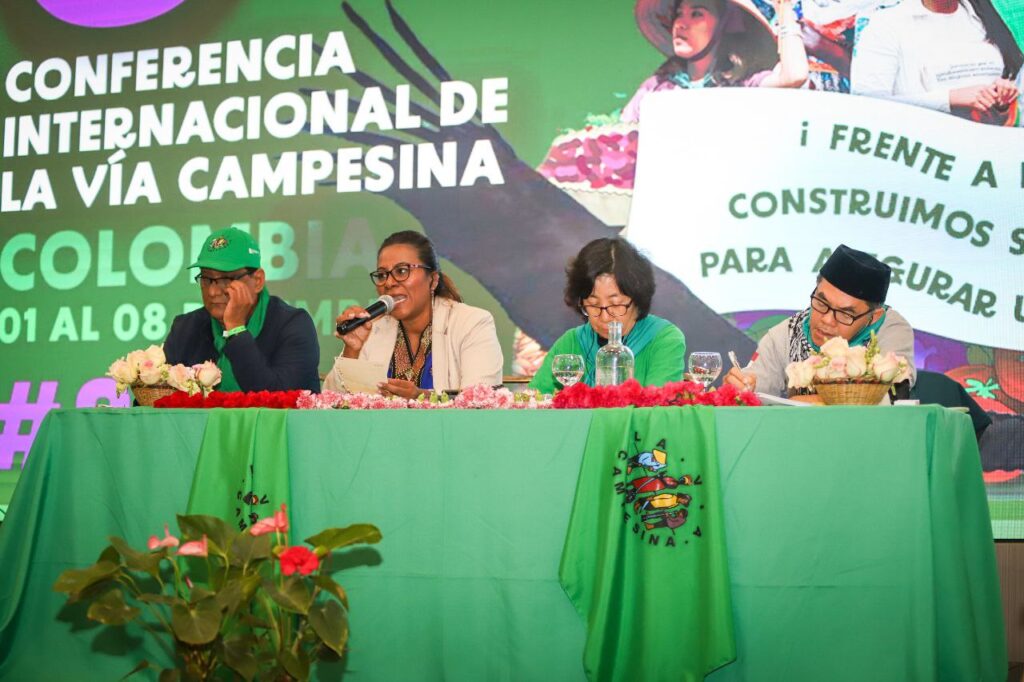
Mrs. Kim then pointed out that a small number of transnational corporations are responsible for the global climate crisis and the carbon dioxide emissions that have caused it. She said, “If we look at global carbon dioxide emissions and global average temperatures, between 1960 and 1970, carbon dioxide emissions increased sharply, and global temperatures rose steeply. During that time, there was a green revolution around the world, from Asia to Mexico, and this green revolution led to the establishment of a very different industrial agricultural system. The Korean government recently touted smart farms as an alternative to the climate crisis, but this is not an alternative to the climate crisis because these smart farms, which are built with the help of capital by driving out farmers, use a huge amount of water, electricity, and chemicals. The alternative to the climate crisis is food sovereignty, smallholder agroecological production, native seeds, and women farmers who care for the land.”
Kim’s presentation, which included photos of various crops damaged by the climate crisis, drew the attention of delegates. In addition, the revelation that the wealthiest 1% of the global population is accountable for 50% of all carbon dioxide emissions sparked significant intrigue, evidenced by many in the audience taking their own photos in response to the report.
